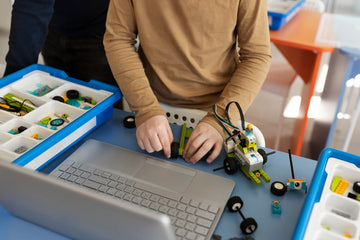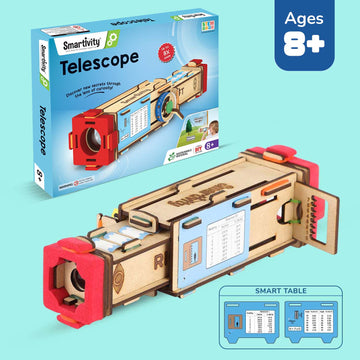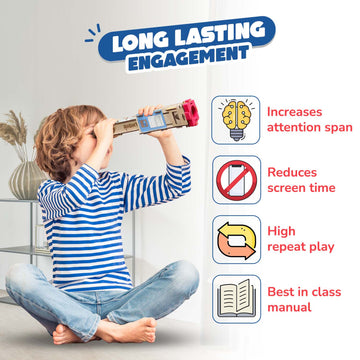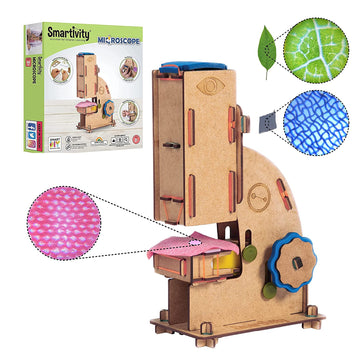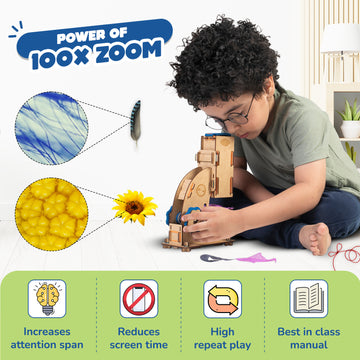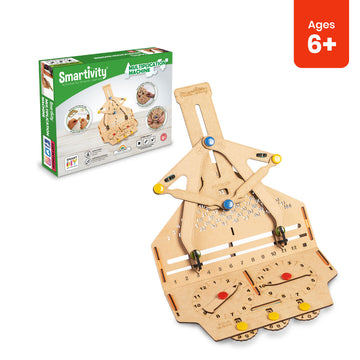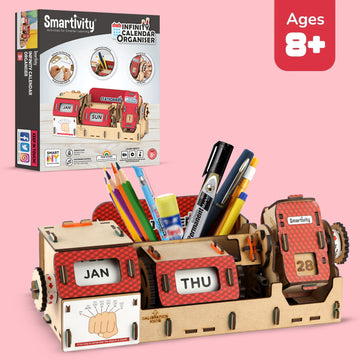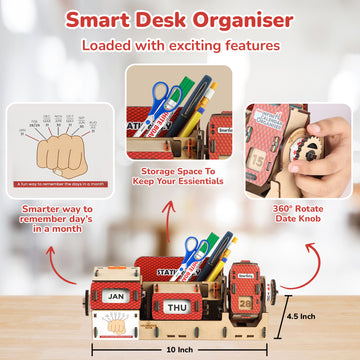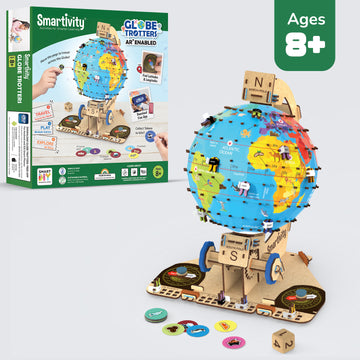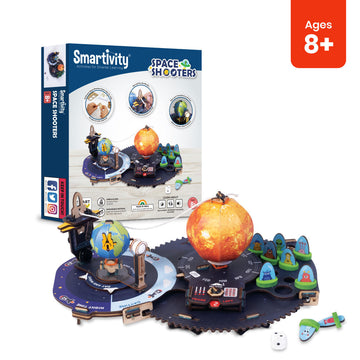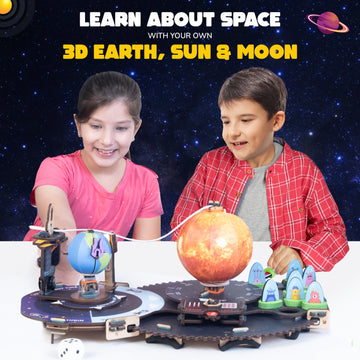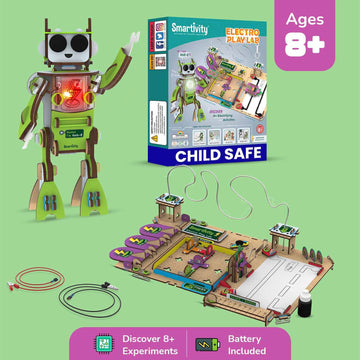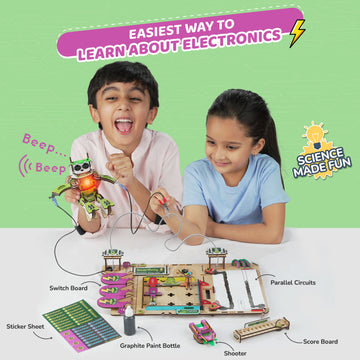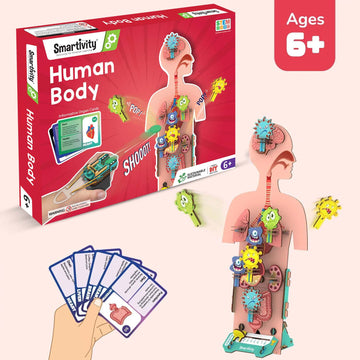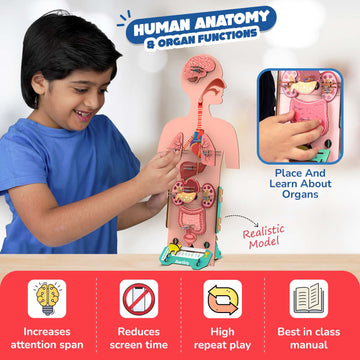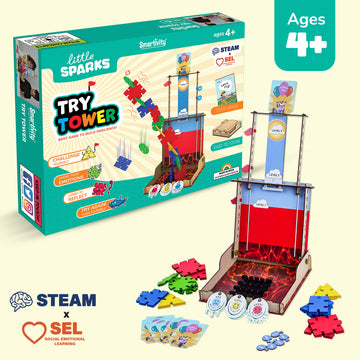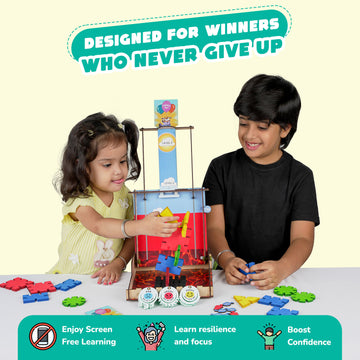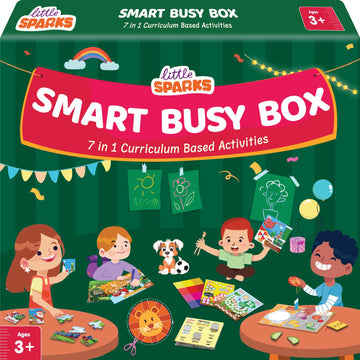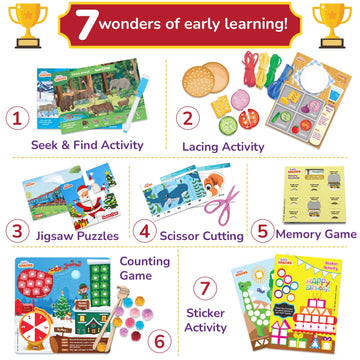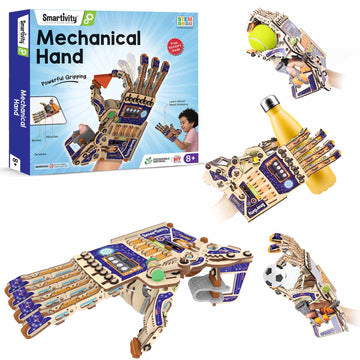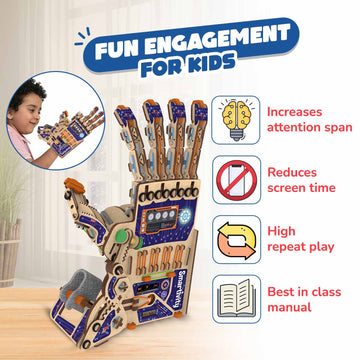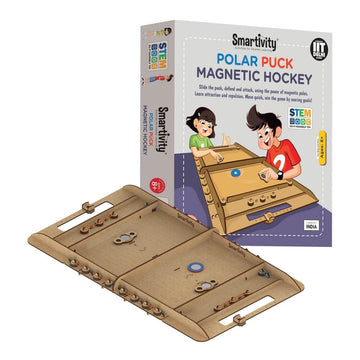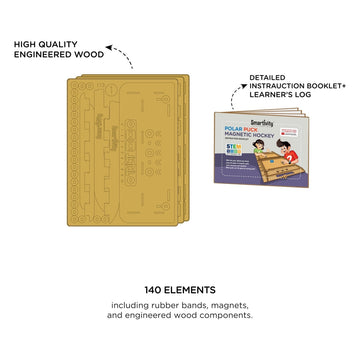10 Tips to Help Your Kids Find Their Interests in Early Childhood
by Smartivity on Wed, Nov 09, 22

When it comes to discovering your child’s passion, there is no one-size-fits-all formula that parents can follow. Tips to find child interests include, among other things, being patient and listening to them with an open mind.
Generally, child psychology experts advise parents to encourage rather than praise their children. According to a scientific study, children who grow up hearing praise tend to please adults. On the other hand, encouragement is a non-judgmental process that actually helps in improving the behaviour of the child.
At the same time, parents are also supposed to be open and honest with their children. Asking questions should be encouraged and any doubts that children might have about their abilities must be answered with sensitivity.
We have rounded up the 10 best tips that can help children discover their passion during early childhood.
How to Help Your Child Find Their Passion?
Discovering one's passion is a life-long process. Unfortunately, many parents don't know how to find kids' interests. One key factor to help children find their passion is to listen to them carefully. You can also encourage them to explore the world with STEM toys. These educational toys, which are built on the best principles of STEM learning, help kids decipher complex scientific concepts in a fun and playful manner. Finally, providing support and showing encouragement always help.

Activities That Can Help in Finding Kids' Passion
Reading: This is a particularly useful activity that can help kids develop their learning skills and improve their vocabulary. Reading also instils among kids a greater appreciation for books and the written word. It's important to encourage kids from an early age to read. Additionally, it's important to provide an environment conducive to reading. This could mean organizing bookshelves and providing a comfortable seating option for children.
Open Communication: As a parent, it's important to encourage open and sincere communication with your kids. Open communication means being honest, speaking your mind, and sharing your feelings. Honesty helps build trust, which is vital in any relationship. Be careful not to exaggerate or make up stories about your child's passion. If you have a genuine question about where they're interested in spending time, try asking them directly instead of making up a story.
Taking Interest: Focusing on your child’s interests can also be an important step in finding their passion. Choosing a hobby your child likes can help you connect with them, feel more connected to the world around you, and build a sense of belonging. This can lead to greater engagement and motivation. Other benefits include encouraging creativity, innovation, and new ideas and providing opportunities for expression, sharing, and building connections.
Learning Pattern Knowledge about kids' learning styles can provide a framework for understanding how they learn best. Different learning styles, such as visual and auditory learners, describe how kids process information. But there isn't one way that makes everyone tick. They can learn by listening, reading and looking things up online. The key is to realize that different kids learn in different ways and to understand their strengths and weaknesses. This knowledge will help you match your child's learning style with the right type of activities and help tailor your teaching strategies accordingly.
Play and learn: Making learning fun is key to helping kids stay engaged throughout the school year. When presented with an engaging classroom environment, kids are more likely to work hard and stay motivated. When kids are excited about their learning, they're more likely to pay attention and retain their learning information. In addition to a child’s interest in learning, there are a number of other ways that you can help your child stay engaged during the school year. For starters, talk with your child about what they like to do and why they might be interested in the subject. It will also give them a sense of direction as they begin their journey of discovery within each subject area.

Educational Toys: STEM toys or educational toys can help your kids develop a variety of skills. STEM stands for Science, Technology, Engineering and Math. It's a term that describes the fields of study that involve these four subject areas. Smartivity produces a range of exciting STEM toys that teach your kids the fundamentals of science in a fun and engaging manner.
Parent-child bonding: Smartivity toys are indeed a great way to develop Parent-child bonding with STEM toys. These toys are considered out-of-the-box learning tools and enable the child to learn through play. Many of these toys promote creativity and encourage creative thinking. They can also engage parents and caregivers in a new way, as they can now contribute to their child's learning experience by actively engaging during their playtime. They can also help improve communication between parent and child by providing a transparent way of communicating their needs. Such child interest activities are essential for achievement in school or life.
Group activities: Community activities or group activities can be a great way for your child to build confidence, explore their environment and make new friends. Encouraging your child to take part in community activities can be especially helpful for children with low self-esteem or those who are shy.
Hidden talents: Encouraging children to explore and discover their natural talents helps them become more confident and self-assured. It's also important to create a safe environment where they can experiment, fail and try again as they learn to master new skills.
Clear doubts: Encouraging children to ask questions is a great way to find out what excites your kids. You can ask them questions like "What do you like to do?" or "How did you get interested in that?" You may also want to ask them about what they have learned from what they have done so far. When kids know that you are interested in what they are doing, it will make them more comfortable sharing their interests with you.
How to Nurture Your Child's Passion?
Nurturing your child's passion is one of the most important things you can do for them. Passion is a deep-seated desire to achieve something essential to success. It's what drives people to succeed in their careers and also drives them to pursue other passions like sports or music. One way how to know your child's interests is to let them try new things. There's a lot of value in taking risks and pushing yourself out of your comfort zone, which can lead to a lifetime of success. Another way is to encourage them to follow their interests as far as they can go. They're more likely to stick with something and push themselves towards bigger goals if they're passionate about something. The key here is to encourage them to do whatever makes them happy.
How Do You Help Your Child Reach Their Full Potential?
- The first step to helping your child reach their full potential is to develop a plan for them. Start by taking an honest look at your child's strengths and weaknesses.
- Then, figure out how you can help them develop those strengths and overcome those weaknesses. One of the best ways to do this is to provide structure in your child's life. This can take the form of daily routines, homework deadlines, and regular family time.
- Another way to help your child reach their full potential is to encourage them when they feel discouraged or frustrated. By providing encouragement and support, you will show them that they have the right to be sad or upset when things don't go as planned.
- Finally, it's important to remember that you can't force your child to change if they don't want to. So, make sure you are always respectful of their decisions and never push them into doing something they aren't ready for.
Conclusion
Smartivity STEM toys are educational toys for kids that encourage a child's creativity and imagination. They help a child develop their cognitive abilities. When used in conjunction with their age-appropriate curriculum, these toys can help your child discover and pursue their passion. For example, Smartivity STEM toys that include robotics can help your child understand how a robot works and what it needs to function properly. And who knows, maybe your child would grow up to become a robotics expert while pursuing his passion.



